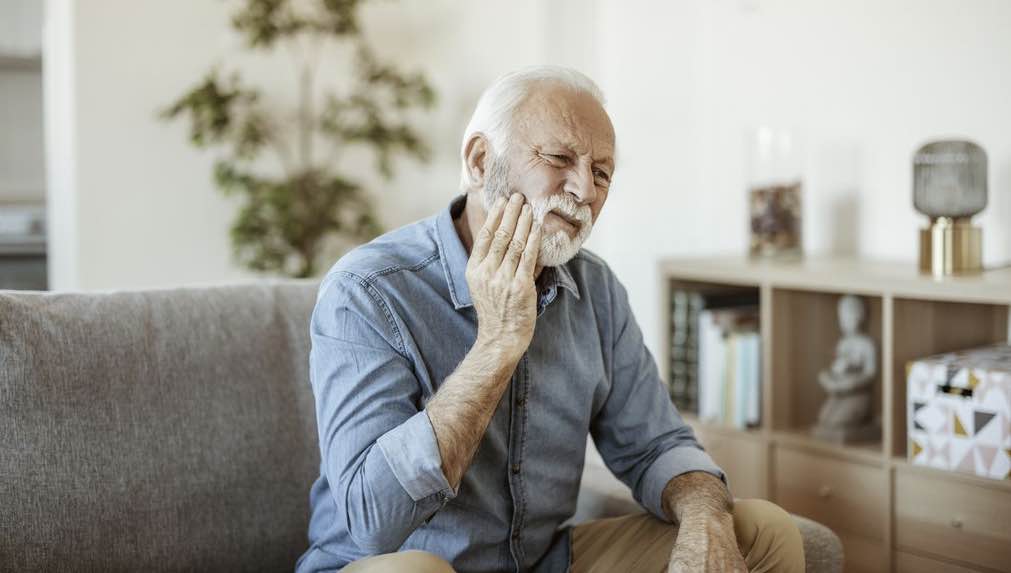In OTC
Follow this topic
Bookmark
Record learning outcomes
The pandemic continues to have a detrimental effect on dental healthcare across the UK. The British Dental Association (BDA) has estimated that the backlog of NHS dental appointments is likely to take years to clear, particularly as patients are now presenting with higher levels of need because regular check-ups have been missed over the past three years.
Earlier this year NHS England announced a £50 million investment in the dental industry, designed to help the sector return to pre-pandemic service levels, but there is a very long way to go.
Dr Nigel Carter, chief executive of the Oral Health Foundation, believes this investment still won’t be enough to make the difference that’s needed for dentists – and their patients. He says: “We welcome the small changes being made in NHS dentistry, but they don’t replace the need for a completely new preventive-based contract, nor address the huge shortage of dentists and the lack of any proper manpower planning.” Sound familiar?
The Secretary of State has announced that the Department of Health and Social Care (DHSC) will continue to change the dental contract to incentivise surgeries to take on more complex work and more NHS patients. The Government is also keen to streamline routes into NHS dentistry for those trained overseas, to address the issue of ‘dental deserts’ – areas where patients are finding it difficult, if not impossible, to register with a dentist.
“The system should not be relying on increased imports of dentists”
Dr Carter says: “It is good to see the changes proposed for international registration. But after the legislation is passed, it will be another 12 months before the General Dental Council (GDC) is able to implement new processes and procedures and even longer before any new dentists enter the workforce. The system should not be relying on increased imports of dentists, but instead should be carrying out a proper manpower review and increasing dental training provision in the UK to be appropriate for current and future needs.”
Although there’s clearly only so much that pharmacy teams can do in the face of such widespread problems, they may be able to help plug immediate gaps that come through the door by making sure they’re up to speed with advances in oral hygiene products and ensuring they can offer some basic advice when asked.
The wide range of oral care products on the OTC market offers community pharmacy a valuable opportunity to communicate the benefits of oral self care, while additional point of sale signage and displays could be one way of raising awareness of oral healthcare ranges. Displays can also be a way of encouraging conversations around the importance of good dental health.
In August, oral hygiene brand TePe launched a campaign to raise awareness of the link between good oral health and overall wellbeing, after a survey revealed that less than half (48 per cent) of UK adults were aware that poor oral hygiene could be linked to long-term health conditions.
TePe teamed with experts to create a downloadable toolkit with tips for consumers about how to maintain good habits and how oral health could be linked to conditions like heart disease, diabetes, poor gut health, arthritis, and mouth cancer. GP Dr Sarah Jarvis, a member of TePe’s smile panel, said: “When we think of the benefits of looking after our oral health, it’s fillings and root canals which normally spring to mind, but the benefits extend much wider than your smile.
“The OTC market offers community pharmacy a valuable opportunity to communicate the benefits of oral self care”
“Poor oral hygiene has been linked to an increased risk of high blood pressure, heart attack, stroke, and heart failure. Similarly, as those with type 2 diabetes, psoriatic arthritis and rheumatoid arthritis are more likely than someone without to develop dental issues or gum disease, maintaining good oral hygiene is all the more important for people with these conditions.”
Amanda Sheehan, dental therapist and clinical support specialist at TePe, added: “With periodontitis linked to many other conditions in the body, including diabetes and cardiovascular disease, it’s vital that patients understand how to keep gum disease at bay. Unfortunately, many people do not know that most dental diseases start between the teeth, where food and plaque accumulate.”
Ms Sheehan suggests interdental brushing as a way to ensure teeth are properly cleaned and cared for. “Many people are unaware that traditional toothbrushing only cleans up to 60 per cent of the tooth’s surface – the inside, outside and biting surfaces, creating a perfect breeding ground for harmful bacteria to develop between the teeth, where food and plaque accumulate,” she explains. “Over time, this can lead to gingivitis (gum disease), and eventually, tooth loss.”
Advice from TePe is that at least once a day before brushing, people should take the time to clean the gaps between their teeth. Those with tight spaces between their teeth should use dental floss, or interdental brushes if the gaps are wider.
“Along with brushing the teeth twice a day using a fluoride toothpaste, this daily dental hygiene routine can help to prevent gum disease by ensuring as much debris is removed from between the teeth as possible,” says the brand.
What are interdental brushes?
An interdental brush is a small brush specially designed to clean between the teeth, where a regular toothbrush does not reach. Used as part of a daily routine in addition to regular toothbrushing, interdental brushes can help prevent gum inflammation, cavities, and bad breath. Here are some tips to pass on to customers who haven’t used them before:
Choose the right size. It’s important to choose a brush of the right size. There is no one size fits all as many people require different sizes for the various gaps between their teeth. Often, more than one brush size may be needed. A dental professional can help patients select the correct brush size. If customers are unable to access a dental professional, advise them to try a mixed pack so they can find the most suitable size(s).
Insert gently. The brush should glide through the space between the teeth. It should not be forced. If the space is too small, the brush should be worked in gently or a smaller size chosen. Only the filaments should touch the sides of the teeth. For tighter spaces, dental floss or tape may be required.
Move the brush gently back and forth a few times in each interdental space. Toothpaste should not be used with interdental brushes. If a lubricant is required, use a chlorhexidine and fluoride gel, such as TePe Gingival Gel, which is designed for use with interdental brushes.
Change the size and curve the neck or wire when needed. Use a straight interdental brush between the front teeth and gently curve a separate brush for better access to the back teeth, or use a pre-angled interdental brush. Brushes can also be used for cleaning implants and orthodontic appliances. After use, they should be rinsed for use again later, and discarded when the filaments are worn.
Dental care for children
It’s time to start brushing a child’s teeth as soon as the first tooth emerges.
Children need help and supervision to brush until the age of 10 to 12 years. A small child does not have the manual skills to brush properly and is not able to understand the consequences of not doing it correctly. A fixed routine, in the morning and before bedtime, makes toothbrushing a natural part of a child’s day.
Cleaning between the teeth with an interdental brush is usually not recommended until all permanent teeth have emerged completely. However, if a dentist or hygienist has advised a young patient to start cleaning between their teeth earlier than that, their recommendation should be followed.
Upsurge in oral cancer
Mouth cancer has many different risk factors. Last year, according to chief executive of the Oral Health Foundation Dr Nigel Carter, 8,846 people in the UK were diagnosed with the disease. “This means that one person in the UK is diagnosed with mouth cancer every hour,” says Dr Carter. “Sadly, the number of people losing their life to mouth cancer has also grown, as well as its frequency. The latest research says that mouth cancer has increased by 103 per cent compared with 20 years ago.”
Pharmacies can help by raising awareness of mouth cancer and its associated symptoms. These can include: ulcers that do not heal within three weeks; unusual red or white patches, or lumps in the neck or jaw area; persistent hoarseness and changes in voice.
If caught early on, there is a better chance of beating the illness and an improved quality of life. “When cancer is caught at a later stage, more invasive treatments are needed, such as radiotherapy or chemotherapy and surgery. This is one of the main reasons mouth cancers have such a high mortality rate,” says Dr Carter.
Follow these links for a general overview, a video on the signs people might spot at home, risk factors and information on what can happen during mouth cancer.





